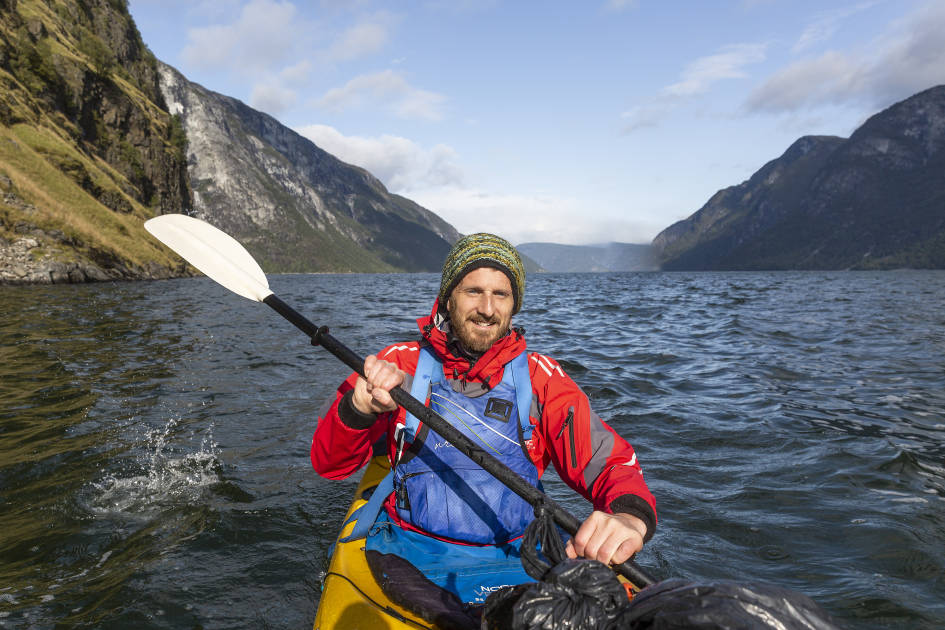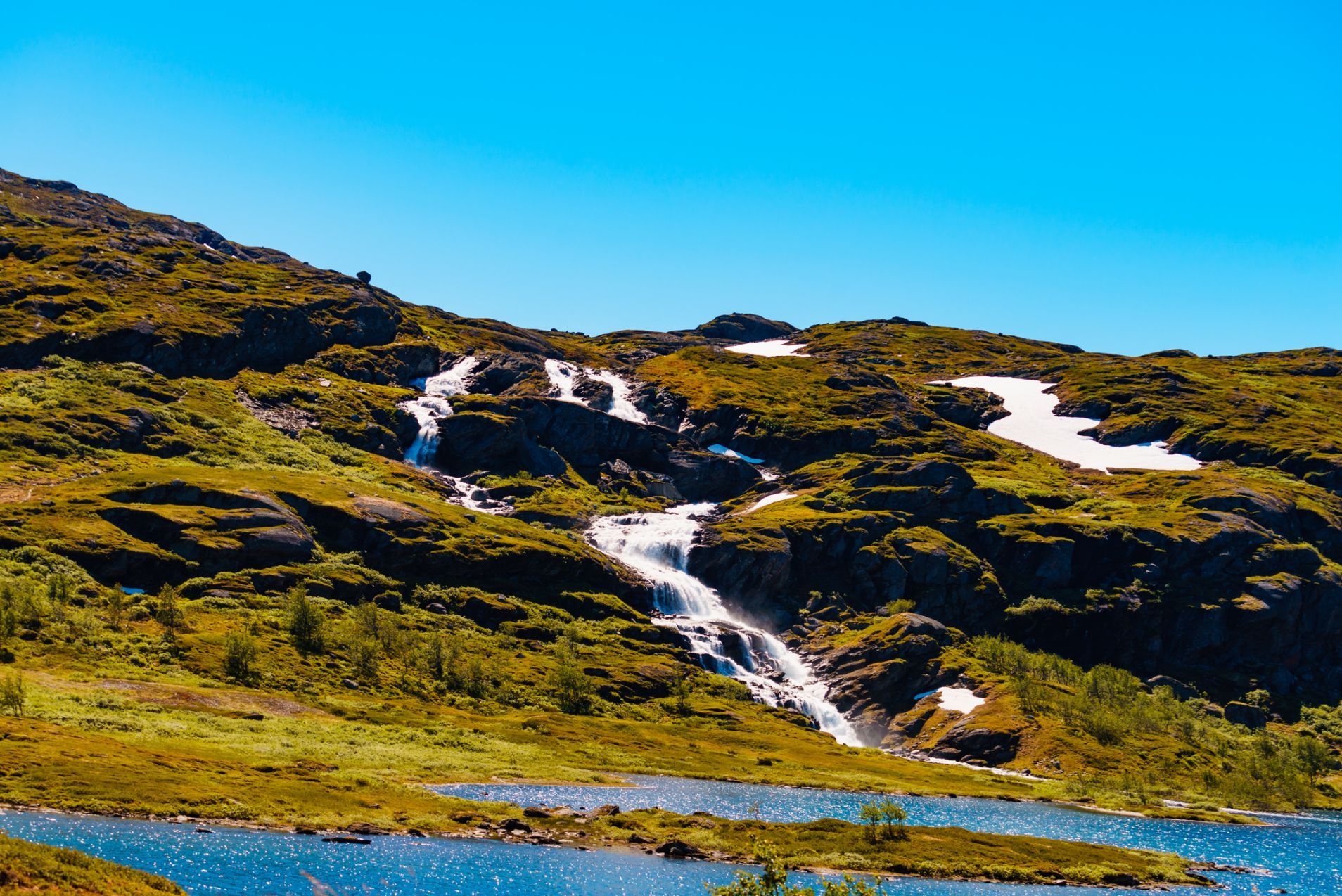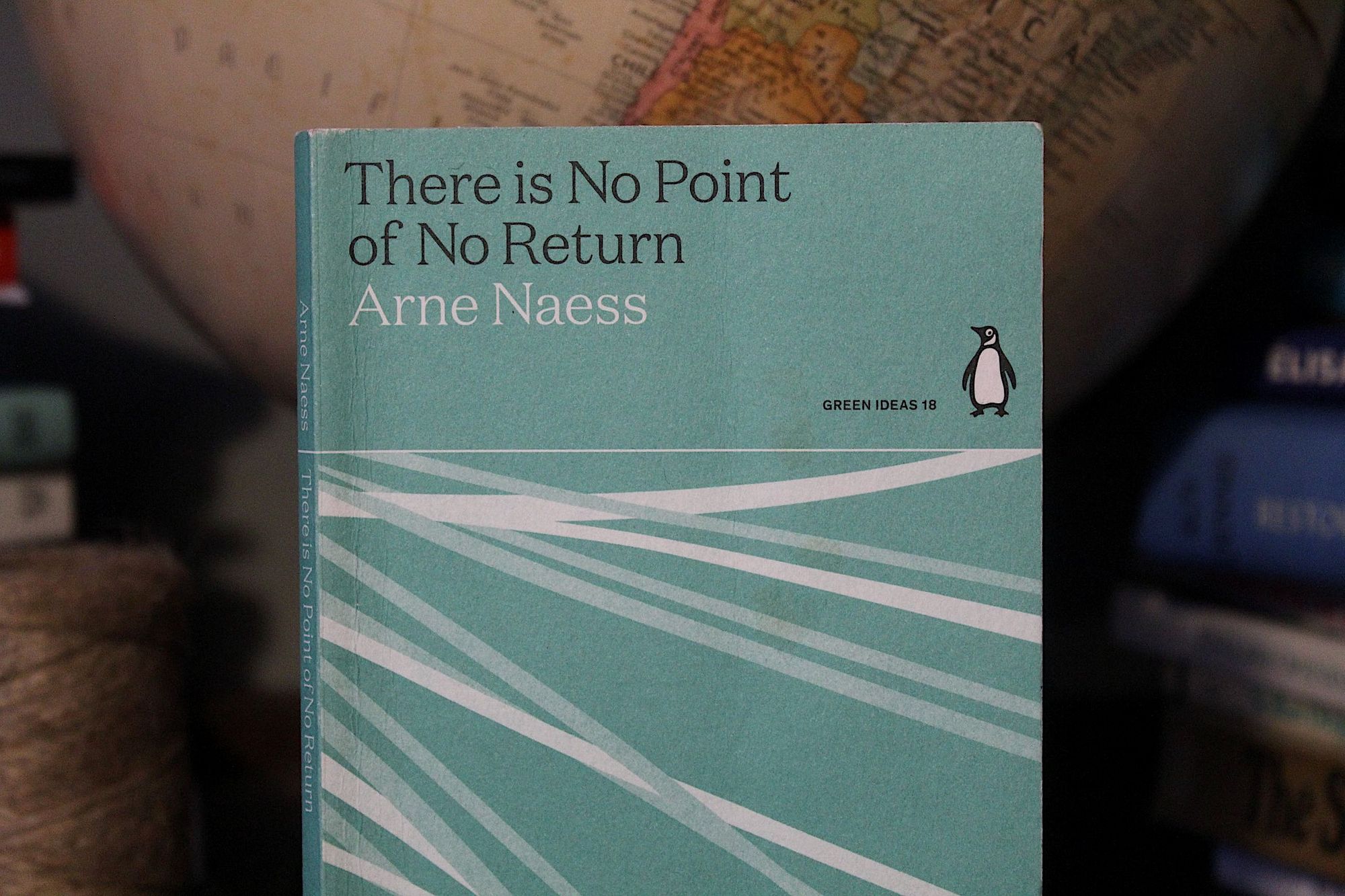Arne Næss was a philosopher and mountaineer who lived from 1912-2009. He’s best known for developing the concept of ‘deep ecology’, while living in a wooden hut high in the mountains of Norway. Næss frequented the Hallingskarvet mountain range, and often said that to have big ideas, you needed to go to big places. The work of Næss is indeed full of big ideas, and they've been explored in the new short anthology There is No Point of No Return. The book is the 18th release in Penguin’s Green Ideas collection - which does exactly what it says on the tin. So, what exactly is deep ecology, and is it still relevant today?
These values are independent of the usefulness of the nonhuman world for human purposes...
There are eight basic principles of the deep ecology movement. Together they tell a story of our world today, where it went wrong and how to fix it.
The first explains the core of the movement. The “well-being and flourishing of human and nonhuman life on Earth have value in themselves,” wrote Næss, and “these values are independent of the usefulness of the nonhuman world for human purposes.” Næss believed that for human life to flourish, so did all life on Earth.
He goes on to quote the American philosopher Tom Regan, who wrote that “the presence of inherent value in a natural object is independent of any awareness, interest, or appreciation of it by any conscious being.” This belief, or realisation, is at the core of each of the principles of the deep ecology movement.

Another of the principles reads that human beings have no right to reduce the richness and diversity that lives within the world "except to satisfy vital needs,” which leads to the fifth principle - our current interference is excessive.
To explain deep ecology, Næss compares the movement with what he describes as 'shallow ecology'. The latter believes in quick fixes and solving issues like the finite nature of resources with technology. It believes if no human use is known for something, it “can be destroyed with indifference,” wrote Næss.
Deep ecology meanwhile has a concern “with resources and habitat for all life-forms for their own sake,” noting “no natural object is conceived of solely as a resource.” It asks us not to centre our concern with issues on their effects on human health, but on the health of life as a whole - taking “a bisopheric point of view.”

The impact of deep ecology on modern day environmentalism is multifold. “The extreme seriousness of our situation must first be realised,” wrote Næss in 1986, “and the longer we wait the more drastic will be the measures needed.” Governments and organisations around the world have now declared a climate emergency - though only after demand from activists.
The ideas of Næss touch on climate justice. “The developing world cannot afford to pay the total cost of the war against pollution,” he wrote, “and consequently require the assistance of the developed world. Exporting pollution is not only a crime against humanity, but also against life.” And the idea is explored that if “non-vital needs conflict with the vital needs of nonhuman life-forms, human beings might yield,” a point now playing out in our choices of fuel, transportation and on today’s menus.
“The extreme seriousness of our situation must first be realised, and the longer we wait the more drastic will be the measures needed.”
In a later essay, Næss writes that "there must be identification for there to be compassion and, among humans, solidarity." Thus, he argues that in order to save nonhuman life, our current levels of empathy must change and extend.
We do not live in a culture that struggles to be empathetic to nonhuman forms. The suffering of cats or dogs makes us sad, because it's easy to empathise with them. Fewer people extend that empathy to animals we eat, fewer yet to insects and even fewer yet to plants. David Attenborough’s new series ‘The Green Planet’ is an interesting attempt to change the latter through narrative. Perhaps it will help us get to where Næss hoped; and that by appreciating the intricacies and connectivity of nature, we will begin to see the intrinsic value in protecting it.
The key to deep ecology is that the aim shouldn’t be to save nature for the sake of humankind. It should be to save it because it's independently worth saving.
There is No Point of No Return is an apt name. A focus on thinking big; on bold, provocative movements and on meaningful change over quick fixes, "activates mental energy and strengthens motivation,” writes Næss - and both are crucial to any work of conservation.
The final principle of Næss’ deep ecology movement states that if you prescribe to all the previous points, you’re obliged to take action. There is no point of no return, but still, the best time to do so is now.
Inspired? Check out our full range of adventure holidays now!
This article contains affiliate links. Which basically means we make a little commission if you click through and buy something. It doesn’t cost you anything, and it just means we can do more good things in good places.


